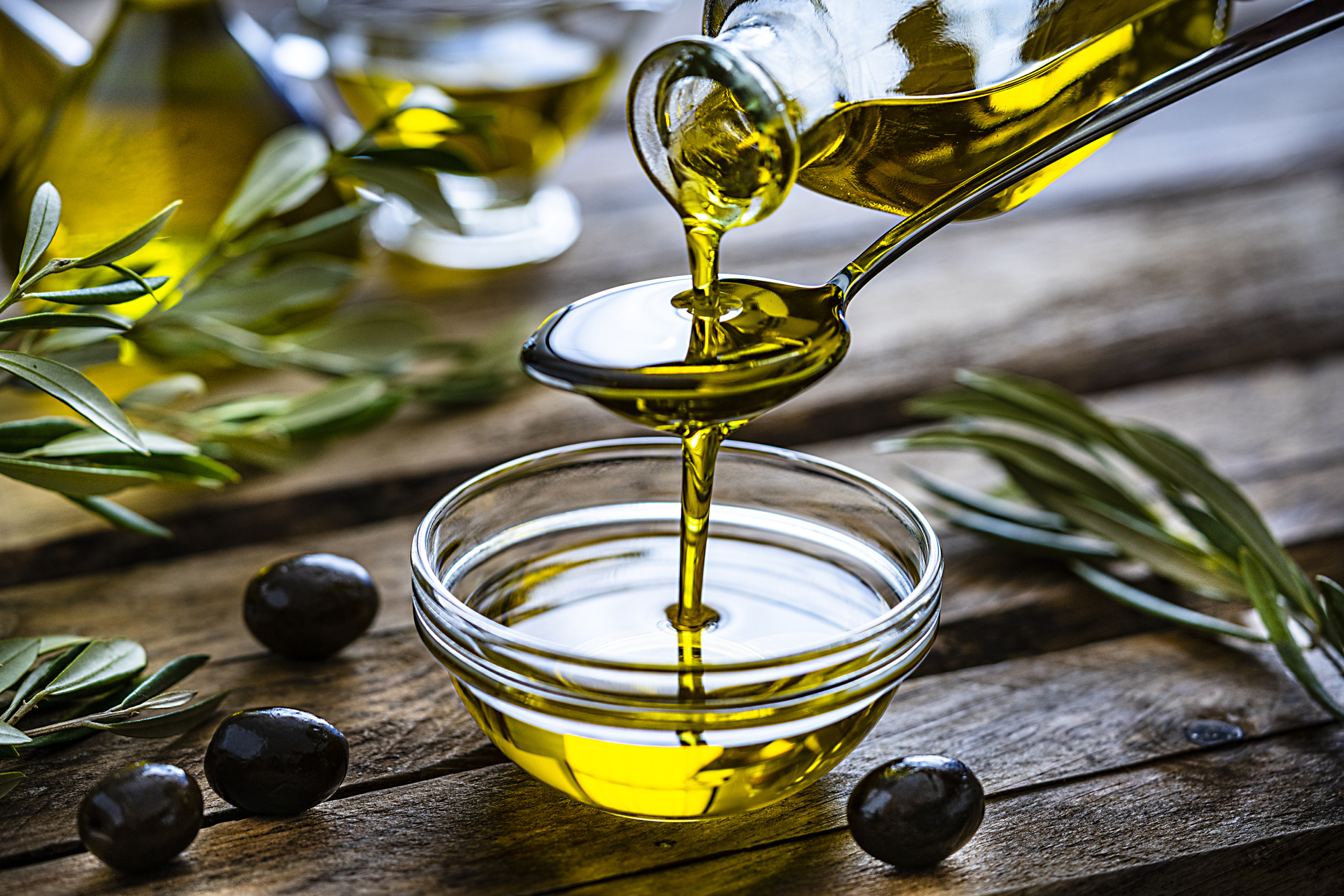

A spoonful of olive oil a day could be the answer to a lot of our health ills. But what makes this oil so healthy?
It helps fight heart disease and osteoporosis, keep your arteries clear, lower dementia-causing brain proteins, heal intestinal injury, reduce your risk of diabetes and protect against depression. Also, it can lower death risk from four major causes — and help fight aging.
Olive oil’s benefits are often attributed to its minor components such as polyphenols. However, researchers are finding its principal component to be worthy of closer study…
The health-boosting power of oleic acid
Oleic acid makes up 70 to 80 percent of olive oil’s composition. It’s the principal monounsaturated fatty acid (MUFA) in the human circulatory system and functions as an energy molecule and a major component of cell membranes and neuronal myelin sheaths.
To shine more light on the benefits of this vital MUFA, professors in Spain teamed up to study its main contributions to health.
Oleic acid has antioxidant properties in the body. It inhibits the expression of proteins associated with cholesterol transport, which helps reduce cholesterol absorption and prevent atherosclerosis.
On the neurological side, the professors note that a significantly lower level of oleic acid has been found in the brains of patients suffering from major depressive disorders and Alzheimer’s disease. Less oleic acid in the body has also been associated with multiple sclerosis in previous studies.
Oleic acid is also considered an anti-inflammatory, although this quality is still being debated by investigators. But oleoylethanolamide, a derivative of oleic acid, has been shown to have anti-inflammatory effects and may influence the immune system by regulating cells involved in inflammation.
Oleoylethanolamide has also been proposed as a potent therapeutic agent to treat obesity.
Emerging research also suggests the oleic acid derivative may influence epigenetic mechanisms that modify DNA and DNA-associated proteins. That could help explain olive oil’s anti-aging benefits.
The professors point out that most studies of olive oil have been conducted on animals, so further research is needed in humans.
Putting olive oil at the heart of your diet
Oleic acid is produced by the diet and synthesis in the body. But if your nutrition is poor, or you have certain diseases that interfere with your body’s absorption of nutrients, you could develop a shortage of this essential MUFA.
The best way to guard against that is to make sure your diet contains plenty of olive oil and other oleic acid-rich foods like nuts, avocadoes, seeds like black cumin seeds and sunflower seeds. Oleic acid is also found in meats and cheeses, but you’ll probably want to stick with its healthier plant-based sources.
As we noted earlier, olive oil is a central nutrient of the Mediterranean diet and its main fat source. When you follow this plan, you’ll eat mainly vegetables and some fish, with limited dairy intake and low red meat consumption. Wine can also be consumed in moderation on the Mediterranean diet.
It can sometimes be difficult to adopt a new diet. Some of the problem lies with the word “diet,” which conjures up visions of deprivation and long lists of banned foods. My colleague Joyce Hollman advises us to think of it as an “eating style” that can be gradually adopted to fit your lifestyle.
Editor’s note: You’re invited to join a tiny handful of Americans who enjoy rare, fresh-pressed olive oil all year long. Take my word for it, there’s a difference in taste, quality and benefit! Click here to learn more…
Sources:
The benefits of olive oil for health and wellbeing — EurekAlert!
Update on Anti-Inflammatory Molecular Mechanisms Induced by Oleic Acid — Nutrients
What Is Atherosclerosis? — National Heart, Lung, and Blood Institute
Oleic Acid – Uses, Side Effects, and More — WebMD
Oleic Acid — Science Direct
Essential Fatty Acid Deficiency — Nutrition Issues in Gastroenterology
